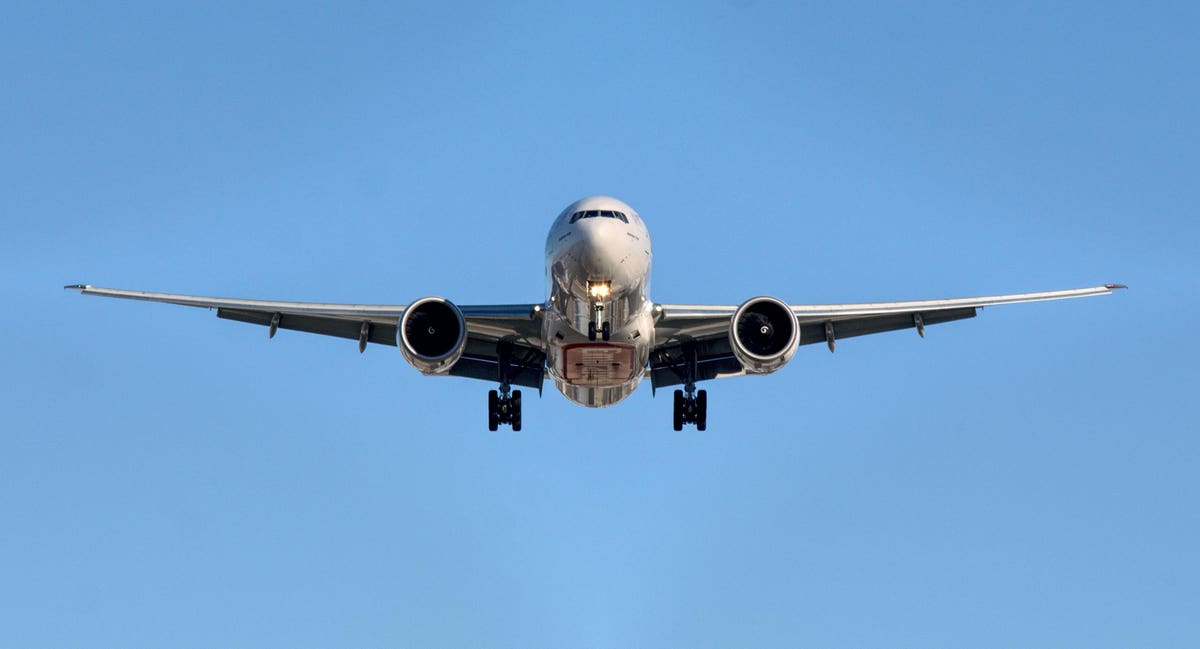In this article I use AAII’s A+ Investor Stock Grades to provide insight into three airlines stocks. With continuing recovery from the coronavirus pandemic increasing consumer demand and the summer travel season starting, should you consider these three airline stocks of American Airlines Group
AAL
LUV
UAL
Airline Stocks Recent News
Airline companies have undoubtedly seen a tumultuous few years. The industry was negatively affected by the coronavirus pandemic, decreasing demand and need for flights. The Russia-Ukraine conflict has posed questions about the future of the industry and created headwinds along the way. Further, shocks to the price of oil have increased flight costs. Prior to these issues, from 2010 to 2019 airline stocks saw sustained growth. Thus, investors must consider these negative shocks as possible opportunities.
Oil prices influence several industries from industrial to consumer, and airlines are heavily affected due to the price of jet fuel, among other things. However, in a recent report, American Airlines noted that it expects higher profits going into summer amid lower fuel costs. The company estimates the average fuel price per gallon to be almost 4% lower in the second quarter compared to the first quarter of 2023. Plus, air travel appears to be returning to pre-pandemic levels seen in 2019. According to the U.S. Transportation Security Administration (TSA), around 300,000 more passengers passed through security checks over this past Memorial Day weekend compared to 2019. In addition, the Federal Aviation Administration (FAA) said that Thursday, May 25, had the nation’s highest post-pandemic daily air traffic.
More people flying and lower average costs have the potential to increase profits in the short term. Larger airlines, such as United Airlines, continue to expand their network to capture increasing demand for air travel. Still, some airlines are uncertain if the summer travel season will be able to recover income lost over the past few years. Back in December 2022, Southwest Airlines had to cancel thousands of flights due to staffing issues. The company recognized a loss in the first quarter of 2023 despite growing revenues.
Overall, airline stocks are heavily affected by macroeconomic conditions. With this exposure in mind and priced in, investors can consider investments in the industry. However, investors should be cautious of their investment horizon. Volatility and inflation have caused issues in all industries. Actively managing these stocks with a set of guidelines may prove fruitful to those who are patient.
Grading Airline Stocks With AAII’s A+ Stock Grades
When analyzing a company, it is helpful to have an objective framework that allows you to compare companies in the same way. This is one reason why AAII created the A+ Stock Grades, which evaluate companies across five factors that have been shown to identify market-beating stocks in the long run: value, growth, momentum, earnings estimate revisions (and surprises) and quality.
Using AAII’s A+ Stock Grades, the following table summarizes the attractiveness of three airline stocks—American Airlines, Southwest Airlines and United Airlines—based on their fundamentals.
AAII’s A+ Stock Grade Summary for Three Airline Stocks
What the A+ Stock Grades Reveal
American Airlines Group (AAL) is a holding company. Its primary business activity is the operation of a network air carrier. The company, together with its regional airline subsidiaries and third-party regional carriers, operates under the American Eagle brand, providing scheduled air transportation for passengers and cargo through its hubs in Charlotte, Chicago, Dallas-Fort Worth, Los Angeles, Miami, New York, Philadelphia, Phoenix and Washington, D.C., and partner gateways, including London, Doha, Madrid, Seattle-Tacoma, Sydney and Tokyo. Its subsidiaries include American Airlines Inc., Envoy Air Inc., PSA Airlines Inc. and Piedmont Airlines Inc. Its cargo division provides a range of freight and mail services with facilities and interline connections available across the globe. It operates 925 mainline aircraft supported by its regional airline subsidiaries and third-party regional carriers, which together operate an additional 536 regional aircraft.
Earnings estimate revisions offer an indication of how analysts are viewing the short-term prospects of a firm. American Airlines has an Earnings Estimate Revisions Grade of C, which is considered neutral. The grade is based on the statistical significance of its last two quarterly earnings surprises and the percentage change in its consensus estimate for the current fiscal year over the past month and past three months.
American Airlines reported an earnings surprise for first-quarter 2023 of –9.1%, and in the prior quarter reported a positive earnings surprise of 2.3%. Over the last three months, the consensus earnings estimate for the second quarter of 2023 has increased to $1.310 per share from $0.929 per share due to 13 upward revisions and one downward revision. This earnings estimate has also increased from the month-ago estimate by 4.4%.
A higher-quality stock possesses traits associated with upside potential and reduced downside risk. Backtesting of the Quality Grade shows that stocks with higher Quality Grades, on average, outperformed stocks with lower grades over the period from 1998 through 2019.
American Airlines has a Quality Grade of A, with a score of 82. The A+ Quality Grade is the percentile rank of the average of the percentile ranks of return on assets (ROA), return on invested capital (ROIC), gross profit to assets, buyback yield, change in total liabilities to assets, accruals to assets, Z double prime bankruptcy risk (Z) score and F-Score. The score is variable, meaning it can consider all eight measures or, should any of the eight measures not be valid, the valid remaining measures. To be assigned a Quality Score, though, stocks must have a valid (non-null) measure and corresponding ranking for at least four of the eight quality measures.
The company ranks strongly in terms of its change in total liabilities to assets and gross income to assets. American Airlines has a change in total liabilities to assets of –5.7% and a gross-income-to-assets ratio of 46.2%. However, the company ranks poorly in terms of its F-Score, with a value of 3. The F-Score is a number between zero and nine that assesses the strength of a company’s financial position. It considers the profitability, leverage, liquidity and operating efficiency of a company.
American Airlines has a Momentum Grade of C, with a score of 47, driven by strong relative price strength in the second-most-recent and third-most-recent quarters offset by lower relative price strength in the most recent and fourth-most-recent quarters. American Airlines also has a Value Grade of A based on its Value Score of 87. The company does not currently pay any regular dividends.
Southwest Airlines Co. (LUV) is the largest domestic carrier in the U.S., as measured by the number of originating passengers boarded. Southwest Airlines operates over 700 aircraft in an all-Boeing 737 fleet. Despite expanding into longer routes and business travel, the airline still specializes in short-haul leisure flights using a point-to-point network. The company offers ancillary services, such as EarlyBird Check-In, upgraded boarding and transportation of pets and unaccompanied minors, in accordance with its respective policies. It has 121 destinations in 42 states, Washington, D.C., Puerto Rico and 10 international countries nearby, such as Mexico, Jamaica, the Bahamas, Aruba, the Dominican Republic, Costa Rica, Belize, Cuba, the Cayman Islands and Turks and Caicos, with more being added consistently. Southwest Airlines operates a low-cost carrier business model.
Southwest Airlines has an A+ Growth Grade of B. The Growth Grade considers the average annual sales growth over the last five years, the number of year-over-year increases in sales and the number of years with positive cash from operations over the five-year period. The company reported first-quarter 2023 revenues of $5.7 billion, up 21.5% from $4.7 billion in the prior-year quarter. The company reported a quarterly diluted loss per share of $0.27, up from a loss of $0.47 per share in the prior-year quarter. Operating cash flows were $706 million, down from $1.1 billion in the prior-year quarter.
Southwest Airlines has a Momentum Grade of D, based on its Momentum Score of 30. This means that it ranks in the second-lowest tier of all stocks in terms of its weighted relative strength over the last four quarters. This score is derived from a high relative price strength of 4.9% in the third-most-recent quarter offset by low relative price strengths of –16.8%, –12.5% and –18.1% in the most recent, second-most-recent and fourth-most-recent quarters, respectively. The ranks are 45, 23, 72 and 23 sequentially from the first quarter. The weighted four-quarter relative price strength is –11.9%, which translates to a rank of 30. The weighted four-quarter relative strength rank is the relative price change for each of the past four quarters, with the most recent quarterly price change given a weight of 40% and each of the three previous quarters given a weighting of 20%.
The company has a strong Quality Grade of B, with an F-Score of 6, which is above the sector median. It also has very strong gross income to assets with a rank of 83. Southwest Airlines has a Growth Score of 71, which is considered strong. The company currently pays an indicated annual dividend of $0.72, translating to a forward yield of 2.4%.
United Airlines Holdings (UAL) is a holding company and its principal, wholly owned subsidiary is United Airlines. It transports people and cargo throughout North America and to destinations in Asia, Europe, Africa, the Pacific, the Middle East and Latin America. The company, through United Airlines and its regional carriers, operates across six continents, with hubs at Newark Liberty International Airport (EWR), Chicago O’Hare International Airport (ORD), Denver International Airport (DEN), George Bush Intercontinental Airport (IAH), Los Angeles International Airport (LAX), Antonio B. Won Pat International Airport (GUM), San Francisco International Airport (SFO) and Washington Dulles International Airport (IAD). Its hub-and-spoke system allows it to transport passengers between several destinations with more frequent service. United Airlines has contractual relationships with various regional carriers to provide regional aircraft service branded as United Express.
The company has a Value Grade of B, based on its Value Score of 70, which is considered to be good value.
United Airlines’ Value Score is based on several traditional valuation metrics. The company has a rank of 13 for the price-to-sales (P/S) ratio, 57 for shareholder yield and 65 for the price-to-book-value (P/B) ratio. The company has a price-to-book ratio of 2.36, a shareholder yield of –0.7% and a 0.32 price-to-sales ratio. A lower price-to-sales ratio is considered better, and United Airlines’ price-to-sales ratio is well below the sector median of 1.22. The price-to-book ratio (the lower the better) is slightly higher than the sector median of 1.95.
The Value Grade is the percentile rank of the average of the percentile ranks of the valuation metrics mentioned above along with the price-to-free cash flow (P/FCF) ratio, the ratio of enterprise value to earnings before interest, taxes, depreciation and amortization (Ebitda) and the price-earnings (P/E) ratio.
United Airlines has a strong Quality Grade of B, with a score of 75. The company has a buyback yield rank of 46. The buyback yield represents the repurchase of outstanding shares divided by a stock’s existing market capitalization. It has a –0.7% buyback yield, which is below the sector median. It has a strong gross-income-to-assets ratio, with a rank of 75. Its F-Score of 7 is above the sector median of 5.
United Airlines has a Growth Grade of B, based on its Growth Score of 71, which is considered strong. This is based on sales increases and positive cash from operations in four out of the last five years. The company has a strong Momentum Grade of B, with a score of 64. The company does not currently pay a dividend.
___
The stocks meeting the criteria of the approach do not represent a “recommended” or “buy” list. It is important to perform due diligence.
If you want an edge throughout this market volatility, become an AAII member.
Read the full article here













